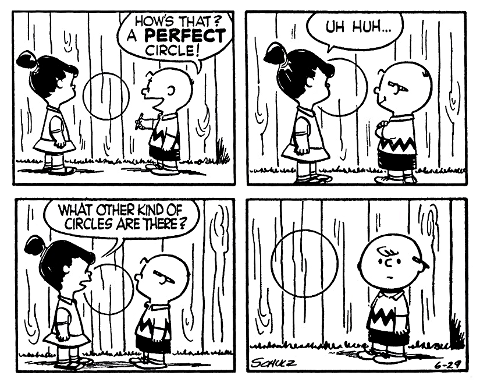The law of demand — a useless tautology immunized against empirical facts Mainstream economics is usually considered to be very ‘rigorous’ and ‘precise.’ And yes, indeed, it’s certainly full of ‘rigorous’ and ‘precise’ statements like “the state of the economy will remain the same as long as it doesn’t change.” Although ‘true,’ this is however — as most other analytical statements — neither particularly interesting nor informative. For the sphere of consumption goods, the law of demand is an essential component of the theory of consumer market behavior. With this law, a specific procedural pattern of price-dependent demand is not postulated, that is, a certain demand function, but only the general form that such a function ought to have. The quantity of the good demanded by the consumers is namely characterized as a monotone-decreasing function of its price … As is well known, the law is usually tagged with a clause that entails numerous interpretation problems: the ceteris paribus clause.
Topics:
Lars Pålsson Syll considers the following as important: Economics
This could be interesting, too:
Lars Pålsson Syll writes Schuldenbremse bye bye
Lars Pålsson Syll writes What’s wrong with economics — a primer
Lars Pålsson Syll writes Krigskeynesianismens återkomst
Lars Pålsson Syll writes Finding Eigenvalues and Eigenvectors (student stuff)
The law of demand — a useless tautology immunized against empirical facts
Mainstream economics is usually considered to be very ‘rigorous’ and ‘precise.’ And yes, indeed, it’s certainly full of ‘rigorous’ and ‘precise’ statements like “the state of the economy will remain the same as long as it doesn’t change.” Although ‘true,’ this is however — as most other analytical statements — neither particularly interesting nor informative.
For the sphere of consumption goods, the law of demand is an essential component of the theory of consumer market behavior. With this law, a specific procedural pattern of price-dependent demand is not postulated, that is, a certain demand function, but only the general form that such a function ought to have. The quantity of the good demanded by the consumers is namely characterized as a monotone-decreasing function of its price …
As is well known, the law is usually tagged with a clause that entails numerous interpretation problems: the ceteris paribus clause. In the strict sense this must thus at least be formulated as follows to be acceptable to the majority of theoreticians: ceteris paribus – that is, all things being equal – the demanded quantity of a consumer good is a monotone-decreasing function of its price …
If the factors that are to be left constant remain undetermined, as not so rarely happens, then the law of demand under question is fully immunized to facts, because every case which initially appears contrary must, in the final analysis, be shown to be compatible with this law. The clause here produces something of an absolute alibi, since, for every apparently deviating behavior, some altered factors can be made responsible. This makes the statement untestable, and its informational content decreases to zero.
One might think that it is in any case possible to avert this situation by specifying the factors that are relevant for the clause. However, this is not the case. In an appropriate interpretation of the clause, the law of demand that comes about will become, for example, an analytic proposition, which is in fact true for logical reasons, but which is thus precisely for this reason not informative. This of course applies to any interpretation that makes the then-clause of the law of demand under question a logical consequence of its if-clause so that, in this case, an actual logical implication results … Through an explicit interpretation of the ceteris paribus clause, the law of demand is made into a tautology.
Various widespread formulations of the law of demand contain an interpretation of the clause that does not result in a tautology, but that has another weakness. The list of the factors to be held constant includes, among other things, the structure of the needs of the purchasing group in question. This leads to a difficulty connected with the identification of needs. As long as there is no independent test for the constancy of the structures of needs, any law that is formulated in this way has an absolute ‘alibi’. Any apparent counter case can be traced back to a change in the needs, and thus be discounted. Thus, in this form, the law is also immunized against empirical facts. To counter this situation, it is in fact necessary to dig deeper into the problem of needs and preferences; in many cases, however, this is held to be unacceptable, because it would entail crossing the boundaries into social psychology.

